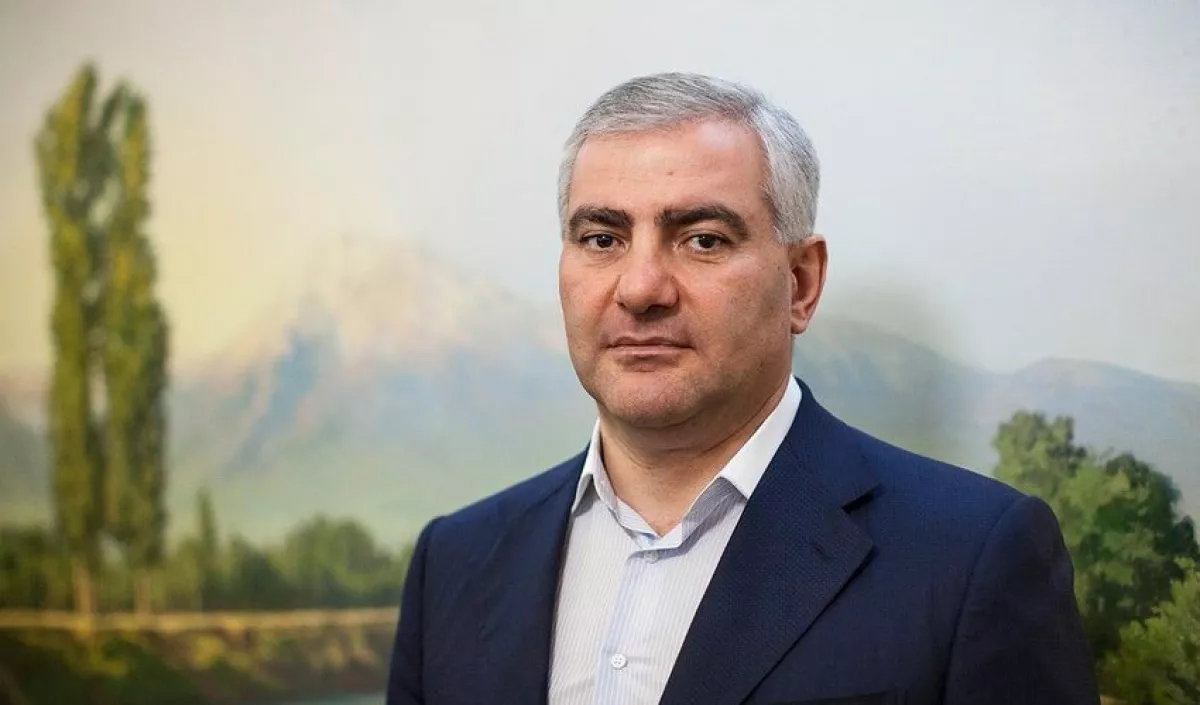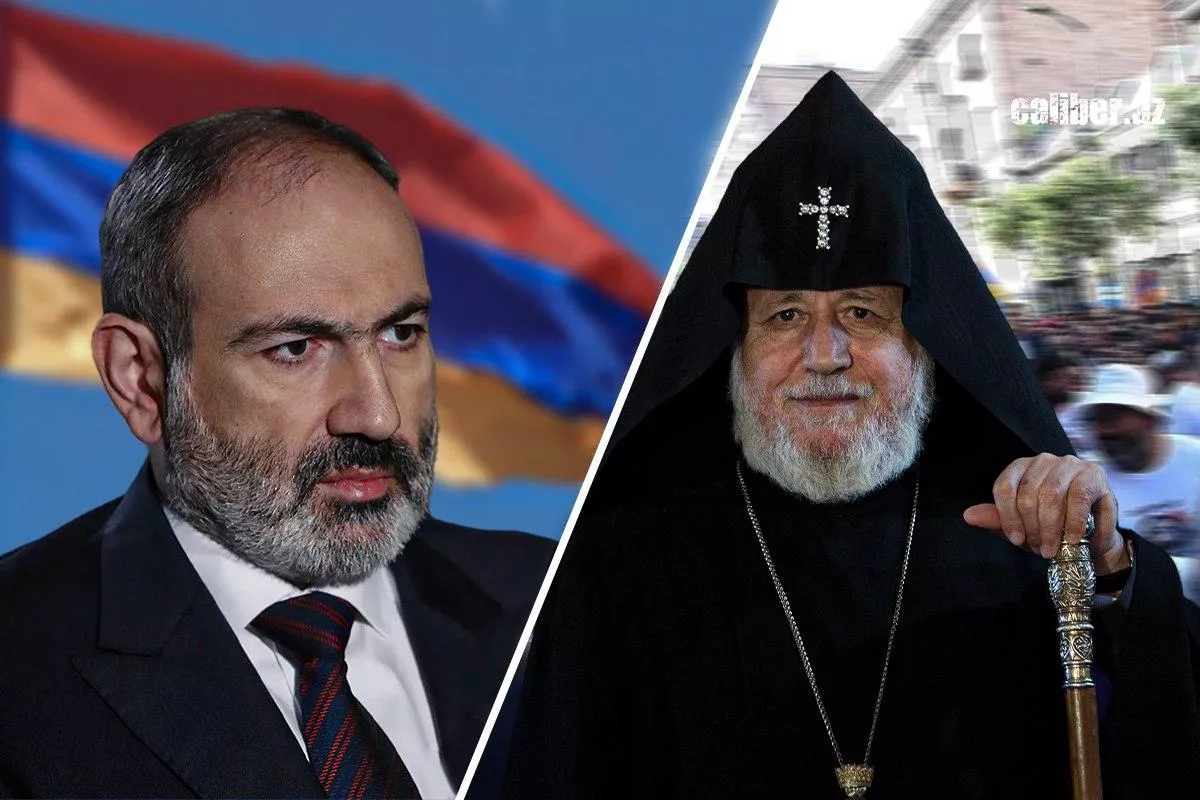Karapetyan as the “apple of discord” Tensions Rise Again Between Armenia and Russia
Amid the ongoing standoff between Armenia’s current authorities and supporters of the Armenian clergy, a new diplomatic scandal appears to be brewing between Armenia and Russia. The cause of the conflict is the arrest of a Russian businessman of Armenian origin, Samvel Karapetyan, president of the Tashir Group of Companies, who has been accused of plotting a coup in Armenia.
Armenian media reports specify that Karapetyan has been charged under Part 2 of Article 422 of the RA Criminal Code – namely, for publicly calling for the seizure of power, violation of territorial integrity, renunciation of sovereignty, and the violent overthrow of the constitutional order in the country.
Just days ago, the billionaire openly expressed his support for the Armenian Church – which is likely the real reason behind his arrest, amid the ongoing confrontation between the country’s leadership and the Armenian clergy.

And, quite predictably, the arrest of the Russian oligarch faced harsh criticism from the Russian political establishment. For example, the State Duma of the Russian Federation stated that "Armenia is fully repeating Ukraine’s path — with its persecution of dissenters and of faith." This was said by Oleg Leonov, Deputy Chairman of the State Duma Committee on Civil Society Development, Public and Religious Associations, commenting on the Armenian authorities’ discontent over entrepreneur Samvel Karapetyan’s support for the Armenian Church.
A sharp statement on the matter was also made by Alexander Boroday, Deputy Chairman of the State Duma Committee on CIS Affairs, Eurasian Integration, and Relations with Compatriots. According to an Armenian media outlet, Borodai warned that "Armenia could cease to exist as a state within the next few decades due to the policies of Prime Minister Nikol Pashinyan."
“This whole story with Armenia is heading towards its logical conclusion. Armenia, with its statehood, may disappear within the next few decades...,” Borodai said, emphasising the anti-Russian direction of Yerevan’s policies.
The Russian Foreign Ministry also voiced its position on the incident. Maria Zakharova, the official spokesperson for Russia’s foreign policy department, assured that Russia would provide assistance to Karapetyan to ensure that all his legal rights are respected.
Of course, prominent pro-Kremlin propagandists also came out in support of Karapetyan — including Margarita Simonyan, editor-in-chief of RT and Sputnik, the controversial TV host Vladimir Solovyov, and others. Simonyan, in particular, called the businessman “a true champion of all Armenians,” while about Pashinyan she wrote that he had “gone wild, like an immortal.”
Moscow’s stance in support of Karapetyan did not go unanswered. Armenia sent a diplomatic note to Russia, as announced by Armenian Foreign Minister Ararat Mirzoyan during a government session in parliament, stating that Yerevan views Russia’s position as interference in the country’s internal affairs.
“The Armenian Foreign Ministry has sent a diplomatic note to Russia regarding statements by politicians and public figures supporting businessman and philanthropist Samvel Karapetyan,” said Mirzoyan, emphasising that such statements pose a threat to Armenia’s sovereignty and democracy.
Thus, official Yerevan delivered two messages to the Russian side: first, that the detention of the Russian billionaire is an internal Armenian matter to which Moscow should have no involvement; and second, that despite external threats, the confrontation between the authorities and the church will continue, along with the persecution of opponents of the current government’s policies.

Relations between the Armenian Apostolic Church (AAC) and Armenia’s leadership significantly deteriorated after Catholicos Garegin II called on Nikol Pashinyan to resign following Armenia’s defeat in the Second Karabakh War. Later, after the prime minister publicly acknowledged that Karabakh belongs to Azerbaijan, relations between the authorities and the church completely broke down.
Therefore, there is no doubt that any support or defence of the interests of Pashinyan’s political opponents—in this case, the church—both inside Armenia and abroad, will push the current authorities toward the most radical methods of struggle.
And one more important nuance: the arrest of Karapetyan is yet another hint that Russia may have a direct connection to the attempted coup in Armenia. Such statements have already been voiced within the Armenian establishment, openly talking about preventing a coup with a “Russian trace” and alleging that “the Russian Federation was behind the process of changing power in Armenia.”
But let’s return to the present day. Another cause of dissatisfaction from the Russian side was the Armenian authorities’ demand to nationalise “Electric Networks of Armenia,” owned by businessman Armen Karapetyan, as announced by Pashinyan himself.
In this regard, Maria Zakharova, the official spokesperson of the Russian Foreign Ministry, reminded that back in 2019, the prime minister had invited international businesses to invest in Armenia and expressed bewilderment that he is now calling for the nationalisation of “Electric Networks of Armenia.”
Thus, given the ultimatum tone of the statements from both sides, it is natural to conclude that the scandal surrounding Karapetyan’s persona may drag on for a long time, inevitably dealing a blow to Armenian-Russian relations, which are already close to a state of permanent freeze.








